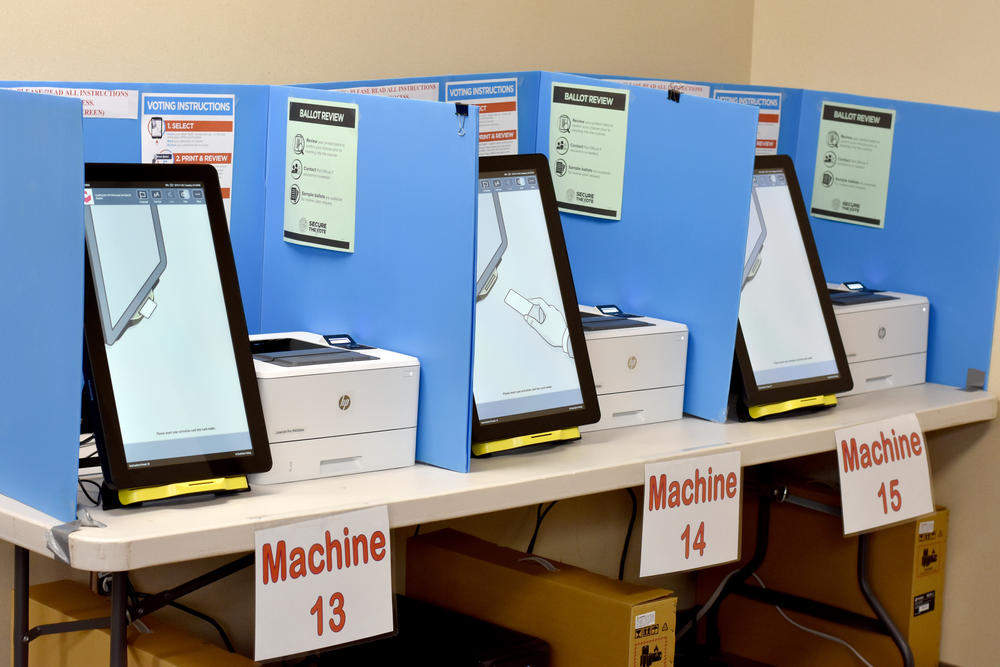Section Branding
Header Content
Some Voting Machine Issues Present In Southwest Georgia Special Election
Primary Content
Elections officials in three southwest Georgia counties reported no issues with the state’s new touchscreen ballot-marking device system during early voting, but poll watchers and staff noted issues with several parts of the process on Election Day.
The $104 million BMD system includes a poll pad that checks voters in, a touchscreen computer to make selections, a printer that creates a paper ballot with a text summary of choices plus a QR code and a scanner that tabulates votes and stores the paper.
The Democratic Party of Georgia’s voter protection director Saira Draper said poll watchers saw multiple problems at different precincts in Mitchell and Colquitt counties.
“We saw failures of the poll pads, we saw failures of the BMDs and printers, we saw failures of the optical scanners in a very small election,” she said. “When you look at what can happen, a 30-minute or one-hour delay in these conditions is one thing, but when you look at what can happen [in bigger elections] the effects of machine failure are going to be felt more.”
Draper said she received reports of everything from a BMD’s printer jamming to the precinct scanner going down.
Republican Secretary of State Brad Raffensperger traveled down to southwest Georgia to observe the election, and his office said they were notified of some of these issues and noted they were fixed
In a press release, Raffensperger said the "small human errors" were the types that occur in every election.
“The transition to any new system will inevitably trigger some human error, and we experienced some minor ones Tuesday," he said. "Our challenge is to scale up this success to more than 2,000 polling places in March for the Presidential Preference Primary. That’s a lot of new users and a lot of opportunity for these types of minor errors.”
The secretary of state said several voter access cards were not working because a poll worker was putting them in the wrong way, and 13 ballots were put into an emergency ballot box due to a scanner running out of power after not being plugged in. The statement also said the issues did not prevent anyone from voting or delay polling places from opening on time.
Decatur County, which was one of the pilot counties that tested the machines in last November’s municipal elections, did not have any reported issues on Election Day.
Elections Director Carol Heard attributed that to the months of training and experience her poll workers had, and said that the other two counties will now benefit from having an election under their belts.
“Every county wants to have a perfect election, so that would be awesome if we all had perfect elections with no mistakes and poll workers were free of errors,” she said. “But mistakes happen and that’s how we learn."
She added that there is “nothing like good hands-on experience, and we’ve been very fortunate that we had that experience in the pilot election.”
Draper agreed that training was imperative to minimizing the negative impact voters could face if problems arise, something that appears likely during the rollout of the new system.
“But we are continually seeing new issues, which makes it almost impossible to prepare poll workers for every eventuality that they will see on Election Day,” she said. “What has been consistent is that these issues continue to occur and continue to cause delays in voting.”
During the pilot election in November, the secretary of state’s office said there were 45 issues or concerns reported and nearly all of them were caused by human error or could be addressed by training.
The first major test for the BMD machines will be the March presidential preference primary election, where all 159 counties will use them in the largest-ever single implementation of a new voting system.


